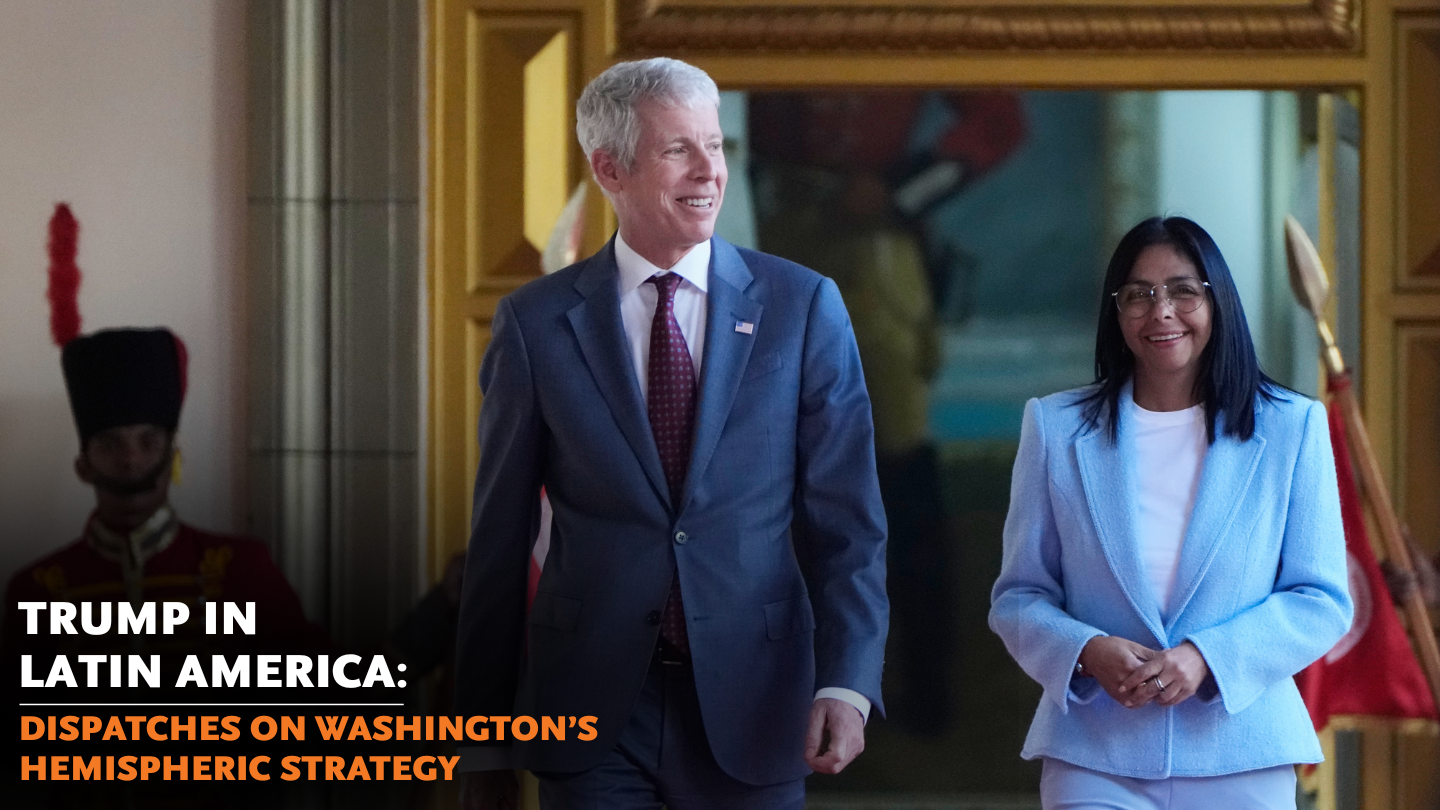What Will Congress Do?
What Will Congress Do?
COA's Director of Government Relations Brian Wanko writes that Congress has the opportunity to make a lasting impact on Latin America's prosperity and development by supporting free-trade agreements with Panama, Peru, and Colombia.
This fall, Congress has an opportunity to make a lasting impact on economic prosperity and development in Latin America. Support of the free-trade agreements (FTAs) with Colombia, Panama and Peru will open new opportunities for countries that have made significant social and economic progress in the last few years. Now, Capitol Hill can be a partner in helping to usher in a secure and prosperous future.
Each country is witnessing new eras of economic growth and stability. Colombia has reinvented its government and economy and is no longer threatened to be overrun by narcoterrorism. Panama, itself once mired with the problems of narcoterrorism, enjoys economic prosperity and democratic stability. And under Alan García, Peru continues to experience steady growth, further washing away memories of hyperinflation and tyranny. Through open markets, the U.S. Congress can help to consolidate these achievements by creating the conditions for economic stability and continued foreign investment.
Critics claim the agreements are nothing more than a new rendition of the controversial ones of the past. This is not the case. After months of bipartisan cooperation, and with the inclusion of labor and environmental standards, the FTAs have advanced both in scope and context.
Opponents also assert that implementation would harm U.S. manufacturing and lead to job losses. These allegations are unwarranted due to one fact: Colombia, Panama and Peru already enjoy nearly complete access to the U.S. market and have for over a decade. If competition from these countries were to negatively impact the U.S. market, the effects would have been felt in 1992, not 15 years later. Instead, by opening currently restricted markets, the biggest impact will be in helping the United States to compete on a level playing field.
Congress achieved a major breakthrough when labor protections and environmental standards were included in the agreements’ text. This unprecedented step, achieved through a May 10 deal with the administration, opened the door to timely congressional consideration of the agreements. But a long time has passed. Only now is Congress beginning to consider the U.S.-Peru Trade Promotion Agreement. On the other hand, Colombia, Panama and Peru worked tirelessly to incorporate these last minute revisions. Since the FTAs had already been approved, each country had to go the extra step and actually change existing laws. Their efforts underscore both commitment and dedication to work with the United States.
Latin America’s perception of the United States continues to sink to new lows. Although it is encouraging that the Bush administration is stepping up cooperation with hemispheric partners, very little has been done by the U.S. Congress—both Republicans and Democrats—to reverse negative impressions. In the meantime, the United States is fighting for hemispheric influence with leaders such as Mahmoud Ahmadinejad, the inflammatory Iranian President. Failure to secure timely passage of these agreements would be a victory for such nemeses.
Hopefully, Members of Congress will take stock of the facts and see the obvious reasons for passage. From Plan Colombia to the Panama Canal and recent earthquake relief in Peru, the United States continues to invest important resources in these countries. The U.S. Congress can further our support by passing the Colombia, Panama, and Peru trade agreements.
Brian Wanko is Director of Government Relations at the Council of the Americas.








